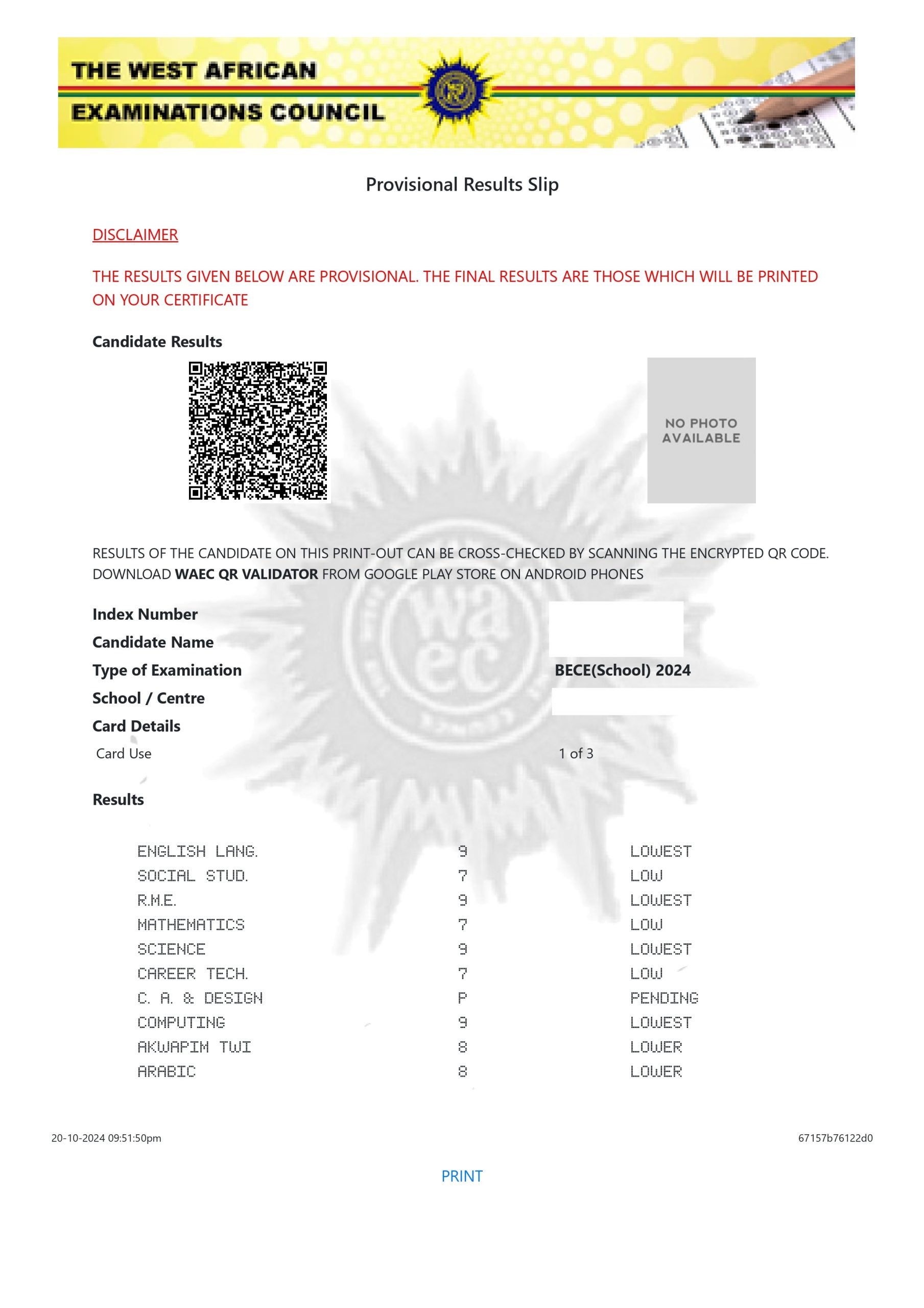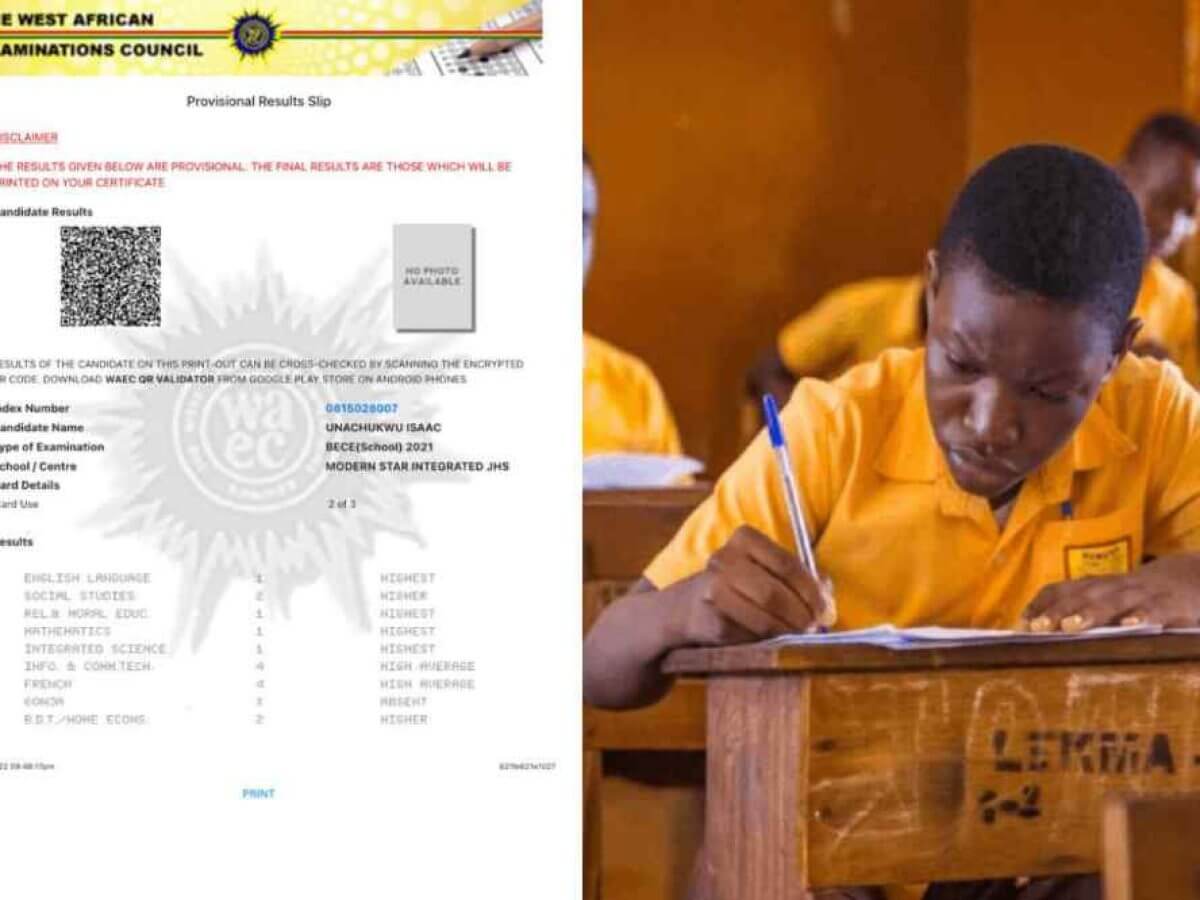The release of the 2024 Basic Education Certificate Examination (BECE) results in Ghana has ignited widespread disappointment and controversy among students, parents, and educators. The unexpected outcomes have raised serious questions about the integrity of the examination process, prompting heated discussions about the future of education in the country.
Frustration and Disappointment
Students who participated in the 2024 BECE are expressing shock and frustration at their results. Many claim that their grades do not accurately reflect their academic performance throughout the school year.
This disconnects between expected and actual results has led to feelings of disillusionment, as students had invested significant effort into their studies. Parents are equally dismayed, questioning the accuracy of the results and their potential impact on their children’s educational trajectories. The uncertainty surrounding these results has created a ripple effect of anxiety within families, as they worry about how these grades will influence future opportunities.
Teachers, too, are voicing their concerns. Many educators have pointed out inconsistencies in the grading system, suggesting that errors may have occurred during the marking process. These inconsistencies further exacerbate the frustrations felt by students and parents alike. The collective disappointment has sparked conversations about the need for a more reliable assessment system that accurately reflects student learning.
Pending Results and Inconsistencies
One of the most pressing issues is the delay in releasing results for specific subjects, particularly Creative Arts and Design. This situation is causing considerable anxiety among students and parents, who fear that pending results could jeopardize school placements and future academic opportunities. The uncertainty surrounding these delays has left many feeling powerless and concerned about their next steps.
Additionally, allegations of inconsistencies in grading have emerged. Some students received unexpectedly low grades despite demonstrating strong academic performance throughout their schooling. This disparity raises questions about the fairness of the grading process and whether it accurately reflects students’ abilities.
Calls for Review and Transparency
In light of these challenges, there is an increasing demand for a thorough review of the BECE results. Students, parents, and teachers are calling for greater transparency from the West African Examination Council (WAEC). They seek clear explanations regarding the delays in results and inconsistencies in grading practices. Many stakeholders are advocating for WAEC to reconsider its grading system to ensure that it fairly evaluates student performance. The call for transparency is not merely about addressing individual grievances; it also reflects a broader desire for accountability within Ghana’s educational assessment framework. Stakeholders want assurance that future examinations will be conducted with integrity and fairness.
Rumours of a New Grading System
Amidst this controversy, rumours have surfaced regarding a potential new grading system being implemented for the 2024 BECE. However, WAEC has not confirmed these claims, nor has there been any official statement from the Ghana Education Service (GES) regarding changes to the existing grading framework. Until such confirmation is provided, uncertainty remains regarding whether any adjustments will be made to address current concerns.
Moving Forward
The controversies surrounding the 2024 BECE serve as a stark reminder of critical issues within Ghana’s educational assessment system. As various stakeholders continue to advocate for clarity and reforms, it is essential to prioritize the well-being of affected students. Restoring trust in the examination process will be vital for promoting academic excellence moving forward.
In conclusion, the 2024 BECE results have unveiled significant challenges within Ghana’s education system. Addressing these concerns through transparency and accountability will be crucial in rebuilding confidence among students, parents, and educators alike. Ensuring a fair examination process is essential not only for individual students but also for the integrity of Ghana’s educational landscape as a whole




